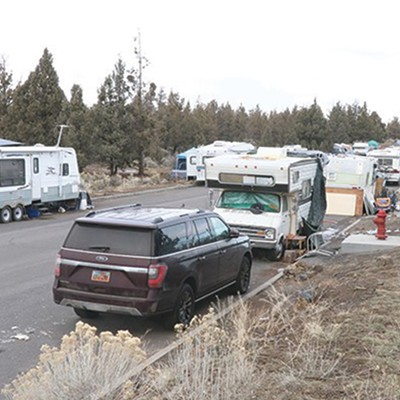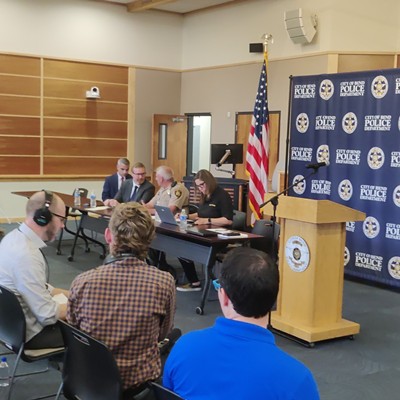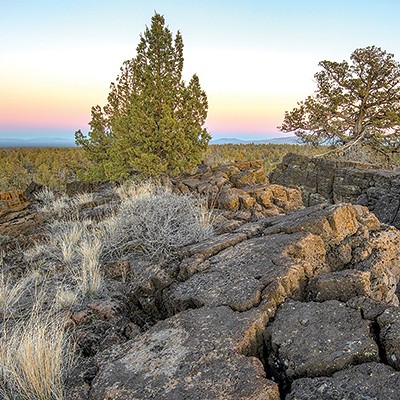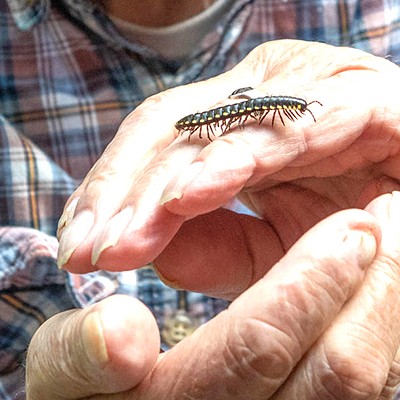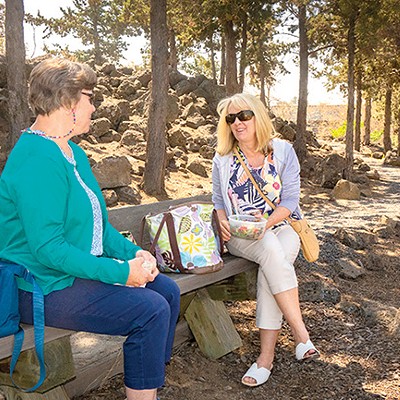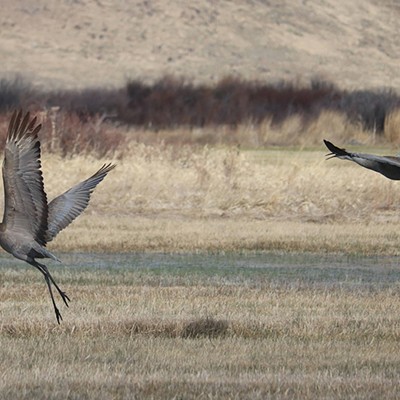In the mid '70s, Oregon's environmental watchdog governor, Tom McCall, started the 1,000 Friends of Oregon. Those were heady days for old-growth forest management, water usage, fuel shortages and the use of electricity.
McCall advocated the shutting down of unnecessary lights after sundown, and in his usual sledge-hammer style of making suggestions, targeted the businesses and electricity-users who were really "wasting" electrical energy by leaving lights on.
Well, that time is still with us. On this occasion, however, shutting down unnecessary lighting will not only save money and electricity and make those who study objects in the night sky ecstatic‚ but also preserve the lives of millions of birds. That's right. Millions.
Most birds migrate at night, from waterbirds to hummingbirds, from raptors to song birds. Ornithological researchers throughout Canada and the U.S. have been studying the behavior of migrating birds and have noticed a great deal of confusion when they encounter bright lights during their nighttime flights. The birds become very vocal, calling to each other to better understand which is the correct way to go.
When birds encounter tall, glassed- in buildings with night lights blazing, it becomes a tragic killing field. Without the ability to see the glass directly in front of the lighted structures, the birds smash into the glass barriers head-on and plummet to the parking lots, sidewalks and streets.
For anyone who has just a smattering of knowledge and admiration for birds and their role in the earth's ecosystems, it's unnecessary to try and put some kind of "value" of birds to compare it with the costs of burning lights at night. Birds are a beautiful part of Earth's ecosystem and do an immeasurable service for Man.
A good example of this situation is the "Tribute in Light" art installation of 88 huge searchlights placed next to the site of the horrifying tragedy of the World Trade Center in New York City.
This has been done to create two vertical columns of light in remembrance of the 9/11 attacks, and is produced by the Municipal Art Society of New York. There are 88 xenon spotlights (44 for each tower) which consume 14,000 watts of electricity.
The lights have caused confusion for thousands of migrating birds, trapping them in the beams. The Municipal Art Society works with the New York City Audubon on the illumination.
Standing right beneath the beams are New York City Audubon volunteers‚ on hand to rescue fallen birds trapped in the lights and scanning the beams, counting numbers of flying birds confused by the lights.
Every time 1,000 birds or more are circling in the beams‚ or an exhausted bird falls to the ground‚ they alert the operator, who immediately turns off the lights for 20 minutes, giving birds a chance to clear the area.
Then there are the hundreds and hundreds of glassed-in towers that are business centers and hotels all throughout the New York/Manhattan countryside, with lights blazing away all night, most of them for advertising their presence, not necessary for someone to see their way.
We don't have sky-scraping glass towers in Central Oregon, but we do have enough outdoor advertising lights to annoy star-gazers to no end and to confuse a lot of wildlife using the stars for navigation.
In some places in our area where navigation corridors come close to lone, bright outdoor lights, migrating birds can be thrown off course and they can be seen circling the lights, acting as though they're confused and have lost their way.
In that light (pun intended), East Cascades Audubon Society is asking people to turn off unnecessary lights at sundown, especially on moonless nights. I can recall how vividly lone yard lights attracted my attention when I was flying over them in the vast unpopulated areas of Oregon's outback, and how distracting they are/were.
How can you help?
At home, turn off unnecessary exterior lights between dusk and dawn.
At the office, draw blinds if you're working after dark. Or use task lighting such as a desk lamp rather than overhead lights that illuminate the entire area.
Talk to your building owner or manager about turning off unnecessary lights or drawing blinds at night. Make sure the janitorial crews that serve your office are informed about Lights Out. East Cascades Audubon Society of Bend has fliers you can share with your employer, janitorial crews, and colleagues. www.lightsoutbend.com
Spread the word on social media! The Lights Out page also provides some sample tweets and Facebook posts. Use the hashtag #lightsout to help build momentum.
Save a buck and save a bird with "Light Out For Birds!"

